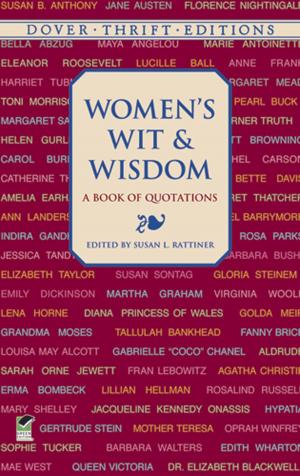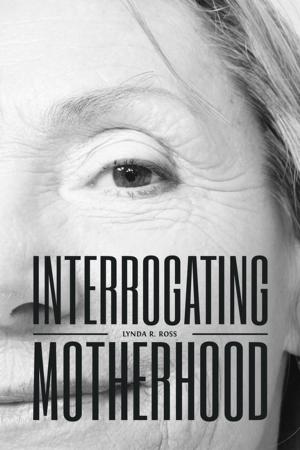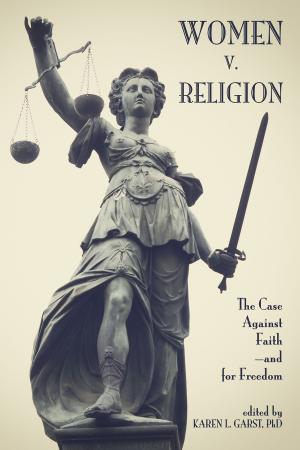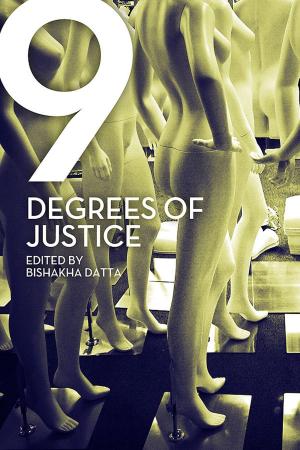THE 50 GREATEST HAPPINESS HACKS
GUIDE TO LEARN HOW TO BECOME HAPPY IN 50 GREAT WAYS
Nonfiction, Health & Well Being, Self Help, Meditations, Health, Women&| Author: | JOHN R. HARRIS | ISBN: | 1230002349985 |
| Publisher: | JOHN R. HARRIS | Publication: | May 31, 2018 |
| Imprint: | Language: | English |
| Author: | JOHN R. HARRIS |
| ISBN: | 1230002349985 |
| Publisher: | JOHN R. HARRIS |
| Publication: | May 31, 2018 |
| Imprint: | |
| Language: | English |
The title question of this message may seem a bit surprising at first. Should 'happiness' really be defined? After all, we all seem to know very well what it is. We know when we are happy and when we are not.
But on closer inspection it turns out not to be that simple. The indication of selected moments where we feel great or terrible are only example states in which we would use the terms "happy" or "unhappy". They do not really define what it is (for requirements of a definition see below) and leave a number of questions unanswered, eg can it be considered "happy" if we do not feel significantly positive or negative?
For the purposes of this blog (and any discussion about happiness for that matter), I think it is important to ensure that we have a solid definition and a common and clear understanding of what we mean by happiness.
Existing definitions
I have researched definitions of happiness that are used today and found that most of them are not suitable as a basis to analyze happiness for any reason. For example, a general type of happiness definition is the following, found on wikipedia.org:
"Happiness is a state of mind or feeling characterized by satisfaction, satisfaction, pleasure or joy."
The problem with definitions like this is that they use expressions that need definitions themselves. For example, what does 'joy' mean exactly in the above definition? Defining "joy" is also not a simple task, and we run the risk of using the term "happiness" again when defining "joy" (Wikipedia actually leads to the "Happiness" article when you "Joy" "enter", ie go inside circles.
Another common form for defining happiness is to mention examples. For example, when people were asked what happiness was for them, they answered in the style of ...
"Happiness is when what you think, what you say and what you do is in harmony."
"Happiness lives in a state of free choice to create and exchange someone's rational values with others."
"Happiness is when you balance your emotions with your mind, constantly face the challenges of life with the thought that" something better "comes at you." Happiness is able to face challenges and overcome them with a smile on your face and a smile on your heart. "Etc.
These examples certainly point to different elements of happiness, but are not comprehensive definitions, at least not in a scientific sense (although it is interesting to hear what makes different people happy ...).
Requirements / criteria for a good definition
So what is there for a good definition, that is, what is the definition of a definition? To serve the purpose of the discussions on this blog, the definition of happiness must be analyzed in a scientific way, which means that the following criteria must be applied:
Measurable and scalable: the degree of happiness must be measurable and - in principle - be able to put different happiness states on a numerical scale
Similarly, the "points on the scale" must be comparable to each other, that is, answer the question of how many "slightly positive moments" are needed to compensate for one "very positive moment". This is already implied by the first criteria, but it may be worth mentioning explicitly
All-encompassing: every moment we live through must be attributed to one point on the scale, implying that it is not only the "positive direction" but also includes unfortunate moments and suffering
"Pleasant": it must reflect our existing notion of what is happiness and not entirely different
The key question is, of course, how a subjective feeling like happiness can ever be placed on an objective scale as mentioned above. Can happiness be completely 'objectified'?
Before we think about how we can make this shift, we need to be clear about where we are trying to go, that is to say what 'objective' actually means. Different world views can collide at this point, but I would like to go on and use the worldview that I share with all the other people who believe in science and the view that the world essentially consists of physical and chemical processes and reactions.
Objectification in this respect therefore means physical and chemical constellations and reactions (up to atomic level if we want to be exact) that would qualify as the phenomena that we want to define (and which do not). In other words, defining means nothing but "grounds in the physical world".
The challenge with defining happiness, however, is that the physical constellations and processes that take place in the brain are a "black box" for us. Today our knowledge of the brain is very limited and we are far from mentioning the precise events in the brain that can be considered as happiness. Although we have some knowledge of emotional centers in the brain and their functions, we are far removed from describing exactly what happens when we are "happy" (which is also closely linked to "being aware", another term that future to define).
Therefore, a "perfect" definition of happiness is not possible at this stage. Although disappointing, it is nonetheless important to point out that it will ultimately be defined in this way. However, the limitations of today force us to find another way that also meets the above criteria as much as possible.
Proposal for a "provisional" definition of happiness
Because understanding means knowing how it came about, it is logical to remind ourselves that happiness and suffering, 'feeling good' and 'feeling bad', 'pleasure' and 'pain' serve a clear evolutionary purpose: us to steer in a certain way that is most favorable for our reproduction (to be precise: our genes). It is a punishment / reward system based on the experience of nature on which actions (very likely) achieve this goal and which do not.
In other words, this penalty / reward system is meant to express to us whether we strive to pursue similar moments in the future or not, that is, whether we should strive to live them again or not. The proposal in this post is that this element, whether we want to experience the moment again (if it is offered to us 'for free') must be used as a basis for defining happiness.
So if the answer to the question "Would you choose to live the moment again if it is offered free for you?" is "Yes" we are in the positive part of the "lucky scale", if the answer is a "No" then negative, or, if we are indifferent, we are at "0".
The advantage of determining happiness in this way is that it brings different emotions to a common basis. Instead of differentiating between pleasure, joy, comfort etc. As different happiness states (which would make it difficult to compare them directly), the only thing that counts is the answer to the "happiness question".
Pronounced as a "definition":
"A person can be considered to experience a" happy "moment if the person chooses to live it again as an end in itself if it is offered at no cost."
At first I thought that a weakness of this definition is that it is often not easy to answer the "happiness question" and that it requires some thinking. For example, if you are asked now: do you want to live again in the last second? For me I would think a bit and then come to the conclusion that I would do that, but it is not clear and strong "yes".
Now I believe that this phenomenon does not point so much to a weakness of the definition, but rather to the fact that we are usually on the "0" of the scale or are very close (at least that is the case for me ).
If we accept this definition for the moment, we now know whether we are positive, negative or "0". We still have to answer the question "how much positive" (or negative) we are, so that the moments are similar to each other.
Here too, the proposal is to ask the person who has gone through the (at least two different) moments to his preference. For example, if we take two moments that are worth living again if they are offered for free (i.e. on the positive part of the scale):
Would you rather re-experience moment I or moment II?
If the answer is "moment I": would you rather experience 2 of "moment II" or one moment "I" again?
And so on. If it turns out that the test person values one 'moment I' as much as 3 'moment II', 'moment II' stands for '+1' on the scale, while moment 'I' is on '+3'.
Do not get me wrong: I'm not suggesting that someone should carry out this cumbersome process for every second that he or she lives. It should only show how, in theory, different happiness states can be set in relation to each other, thus deepen our understanding of happiness.
Critical assessment of the proposed definition
On the positive side, this definition satisfies all criteria as defined above:
It makes happiness measurable and scalable
Different "happiness states" can be compared
It is comprehensive, because the happiness question can be applied for every moment we live (there is always an answer)
It is "pleasant" because it is good
Furthermore, as mentioned above, it provides a simple and common basis for all emotions, thus reducing complexity. However, there are also some critical questions:
What if you ask someone with a mental illness or who identifies as a masochist who has a lot of pain, but still says he wants to experience the moment again? Can that be called 'happiness'?
Assuming that the pain really is the predominant emotion (which for masochism is often not, from the outside it seems painful, but the person can get a strong counter-emotion, for example, sexual, which overcompensates the pain, so he is indeed "happy" ) this example shows the disadvantage of not measuring the "real" but making an approach with an experimental question. However, this case can be considered rather unusual and exceptional.
What about animals that are clearly capable of feeling pleasure and pain and that cannot respond to the "happiness question"?
Response does not have to be verbal, but can also take place in other forms due to behavior. A mouse that stays away from the electro-shock stick, for example, shows that he does not want to experience the experience of touching it again. It is possible to set up experiments that clearly show the preference of the animal for one or the other situation.
It still does not give full transparency about how happy we are, because we have to carry out this process (asking the happiness question) for every moment of our lives.
The unit that is measured need not be limited to a "short moment" (for example, a second), but can last longer, in the extreme case with the question "would you choose to live your whole life again? if offered (with exactly the same emotions, know-how, etc.)? ".
However, the risk of extending the measured period is that there may be significant disruptions, because our assessment of the past is strongly influenced by how we feel at the moment we conduct the assessment. For example, if we feel good, our assessment of our past is likely to be considerably more positive than if we had a major stroke, while there would be no difference because the life we have lived up to now is a fact and could not have changed. . This distortion and how to deal with this will be dealt with in the following messages.
This is a first shot in defining happiness. Before going any further and addressing the logical questions that arise from this, I want to stop here and ask you what you think of this "provisional" definition. Do you see defects in thinking? Did I miss something important? I would like to hear your thoughts.
The title question of this message may seem a bit surprising at first. Should 'happiness' really be defined? After all, we all seem to know very well what it is. We know when we are happy and when we are not.
But on closer inspection it turns out not to be that simple. The indication of selected moments where we feel great or terrible are only example states in which we would use the terms "happy" or "unhappy". They do not really define what it is (for requirements of a definition see below) and leave a number of questions unanswered, eg can it be considered "happy" if we do not feel significantly positive or negative?
For the purposes of this blog (and any discussion about happiness for that matter), I think it is important to ensure that we have a solid definition and a common and clear understanding of what we mean by happiness.
Existing definitions
I have researched definitions of happiness that are used today and found that most of them are not suitable as a basis to analyze happiness for any reason. For example, a general type of happiness definition is the following, found on wikipedia.org:
"Happiness is a state of mind or feeling characterized by satisfaction, satisfaction, pleasure or joy."
The problem with definitions like this is that they use expressions that need definitions themselves. For example, what does 'joy' mean exactly in the above definition? Defining "joy" is also not a simple task, and we run the risk of using the term "happiness" again when defining "joy" (Wikipedia actually leads to the "Happiness" article when you "Joy" "enter", ie go inside circles.
Another common form for defining happiness is to mention examples. For example, when people were asked what happiness was for them, they answered in the style of ...
"Happiness is when what you think, what you say and what you do is in harmony."
"Happiness lives in a state of free choice to create and exchange someone's rational values with others."
"Happiness is when you balance your emotions with your mind, constantly face the challenges of life with the thought that" something better "comes at you." Happiness is able to face challenges and overcome them with a smile on your face and a smile on your heart. "Etc.
These examples certainly point to different elements of happiness, but are not comprehensive definitions, at least not in a scientific sense (although it is interesting to hear what makes different people happy ...).
Requirements / criteria for a good definition
So what is there for a good definition, that is, what is the definition of a definition? To serve the purpose of the discussions on this blog, the definition of happiness must be analyzed in a scientific way, which means that the following criteria must be applied:
Measurable and scalable: the degree of happiness must be measurable and - in principle - be able to put different happiness states on a numerical scale
Similarly, the "points on the scale" must be comparable to each other, that is, answer the question of how many "slightly positive moments" are needed to compensate for one "very positive moment". This is already implied by the first criteria, but it may be worth mentioning explicitly
All-encompassing: every moment we live through must be attributed to one point on the scale, implying that it is not only the "positive direction" but also includes unfortunate moments and suffering
"Pleasant": it must reflect our existing notion of what is happiness and not entirely different
The key question is, of course, how a subjective feeling like happiness can ever be placed on an objective scale as mentioned above. Can happiness be completely 'objectified'?
Before we think about how we can make this shift, we need to be clear about where we are trying to go, that is to say what 'objective' actually means. Different world views can collide at this point, but I would like to go on and use the worldview that I share with all the other people who believe in science and the view that the world essentially consists of physical and chemical processes and reactions.
Objectification in this respect therefore means physical and chemical constellations and reactions (up to atomic level if we want to be exact) that would qualify as the phenomena that we want to define (and which do not). In other words, defining means nothing but "grounds in the physical world".
The challenge with defining happiness, however, is that the physical constellations and processes that take place in the brain are a "black box" for us. Today our knowledge of the brain is very limited and we are far from mentioning the precise events in the brain that can be considered as happiness. Although we have some knowledge of emotional centers in the brain and their functions, we are far removed from describing exactly what happens when we are "happy" (which is also closely linked to "being aware", another term that future to define).
Therefore, a "perfect" definition of happiness is not possible at this stage. Although disappointing, it is nonetheless important to point out that it will ultimately be defined in this way. However, the limitations of today force us to find another way that also meets the above criteria as much as possible.
Proposal for a "provisional" definition of happiness
Because understanding means knowing how it came about, it is logical to remind ourselves that happiness and suffering, 'feeling good' and 'feeling bad', 'pleasure' and 'pain' serve a clear evolutionary purpose: us to steer in a certain way that is most favorable for our reproduction (to be precise: our genes). It is a punishment / reward system based on the experience of nature on which actions (very likely) achieve this goal and which do not.
In other words, this penalty / reward system is meant to express to us whether we strive to pursue similar moments in the future or not, that is, whether we should strive to live them again or not. The proposal in this post is that this element, whether we want to experience the moment again (if it is offered to us 'for free') must be used as a basis for defining happiness.
So if the answer to the question "Would you choose to live the moment again if it is offered free for you?" is "Yes" we are in the positive part of the "lucky scale", if the answer is a "No" then negative, or, if we are indifferent, we are at "0".
The advantage of determining happiness in this way is that it brings different emotions to a common basis. Instead of differentiating between pleasure, joy, comfort etc. As different happiness states (which would make it difficult to compare them directly), the only thing that counts is the answer to the "happiness question".
Pronounced as a "definition":
"A person can be considered to experience a" happy "moment if the person chooses to live it again as an end in itself if it is offered at no cost."
At first I thought that a weakness of this definition is that it is often not easy to answer the "happiness question" and that it requires some thinking. For example, if you are asked now: do you want to live again in the last second? For me I would think a bit and then come to the conclusion that I would do that, but it is not clear and strong "yes".
Now I believe that this phenomenon does not point so much to a weakness of the definition, but rather to the fact that we are usually on the "0" of the scale or are very close (at least that is the case for me ).
If we accept this definition for the moment, we now know whether we are positive, negative or "0". We still have to answer the question "how much positive" (or negative) we are, so that the moments are similar to each other.
Here too, the proposal is to ask the person who has gone through the (at least two different) moments to his preference. For example, if we take two moments that are worth living again if they are offered for free (i.e. on the positive part of the scale):
Would you rather re-experience moment I or moment II?
If the answer is "moment I": would you rather experience 2 of "moment II" or one moment "I" again?
And so on. If it turns out that the test person values one 'moment I' as much as 3 'moment II', 'moment II' stands for '+1' on the scale, while moment 'I' is on '+3'.
Do not get me wrong: I'm not suggesting that someone should carry out this cumbersome process for every second that he or she lives. It should only show how, in theory, different happiness states can be set in relation to each other, thus deepen our understanding of happiness.
Critical assessment of the proposed definition
On the positive side, this definition satisfies all criteria as defined above:
It makes happiness measurable and scalable
Different "happiness states" can be compared
It is comprehensive, because the happiness question can be applied for every moment we live (there is always an answer)
It is "pleasant" because it is good
Furthermore, as mentioned above, it provides a simple and common basis for all emotions, thus reducing complexity. However, there are also some critical questions:
What if you ask someone with a mental illness or who identifies as a masochist who has a lot of pain, but still says he wants to experience the moment again? Can that be called 'happiness'?
Assuming that the pain really is the predominant emotion (which for masochism is often not, from the outside it seems painful, but the person can get a strong counter-emotion, for example, sexual, which overcompensates the pain, so he is indeed "happy" ) this example shows the disadvantage of not measuring the "real" but making an approach with an experimental question. However, this case can be considered rather unusual and exceptional.
What about animals that are clearly capable of feeling pleasure and pain and that cannot respond to the "happiness question"?
Response does not have to be verbal, but can also take place in other forms due to behavior. A mouse that stays away from the electro-shock stick, for example, shows that he does not want to experience the experience of touching it again. It is possible to set up experiments that clearly show the preference of the animal for one or the other situation.
It still does not give full transparency about how happy we are, because we have to carry out this process (asking the happiness question) for every moment of our lives.
The unit that is measured need not be limited to a "short moment" (for example, a second), but can last longer, in the extreme case with the question "would you choose to live your whole life again? if offered (with exactly the same emotions, know-how, etc.)? ".
However, the risk of extending the measured period is that there may be significant disruptions, because our assessment of the past is strongly influenced by how we feel at the moment we conduct the assessment. For example, if we feel good, our assessment of our past is likely to be considerably more positive than if we had a major stroke, while there would be no difference because the life we have lived up to now is a fact and could not have changed. . This distortion and how to deal with this will be dealt with in the following messages.
This is a first shot in defining happiness. Before going any further and addressing the logical questions that arise from this, I want to stop here and ask you what you think of this "provisional" definition. Do you see defects in thinking? Did I miss something important? I would like to hear your thoughts.















